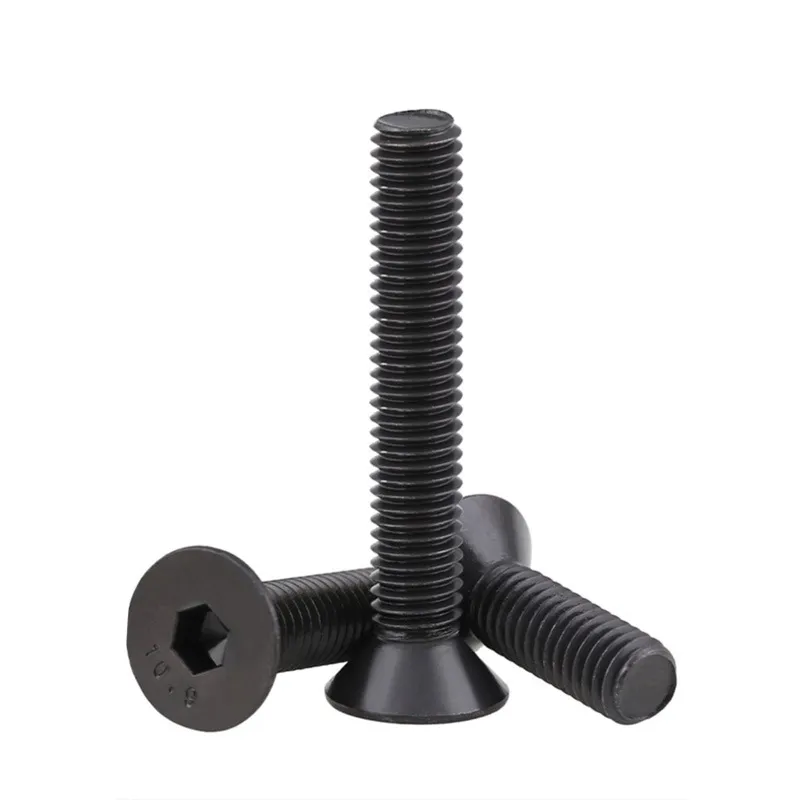

Comparing Stud Bolts and Machine Bolts as Essential Fastening Solutions
Sep . 28, 2024 20:46 Back to list
Comparing Stud Bolts and Machine Bolts as Essential Fastening Solutions
Understanding Stud Bolts and Machine Bolts Key Fasteners in Engineering
Fasteners play a crucial role in engineering and construction. Among the myriad types of fasteners available, stud bolts and machine bolts are widely utilized due to their strength, versatility, and reliability. Understanding the differences between these two types of fasteners can help engineers, builders, and DIY enthusiasts make informed choices for their projects.
What are Stud Bolts?
Stud bolts are threaded rods that are used to fasten components together, usually composed of two hex nuts and occasionally additional washers. Studs are typically used in high-stress applications where the demand for resistance to high tensile loads is paramount. These bolts are often made from high-strength materials such as carbon steel, stainless steel, or alloy steel, making them suitable for various demanding environments, including manufacturing and construction.
One of the significant advantages of stud bolts is their ability to provide a full engagement of threads within the nut. This full engagement helps distribute the load evenly across the fastener length, minimizing stress concentrations and potential failure points. Studs are particularly useful in applications where space is limited, as they can be installed through pre-drilled holes without requiring a head that would otherwise take up additional space.
Applications of Stud Bolts
Stud bolts are primarily used in flanged joints in piping systems across industries such as oil and gas, chemical processing, and power generation. They provide critical fastening solutions in environments that experience high vibration, pressure, and temperature extremes. For instance, in petrochemical plants, stud bolts secure flanges on pressure vessels, ensuring a tight seal and preventing leaks.
In addition to industrial applications, stud bolts are also prevalent in construction, particularly in structures that require high shear strength and tensile resistance. They are frequently employed in bridges, buildings, and machinery, where structural integrity is paramount.
What are Machine Bolts?
stud bolt and machine bolt - a fastener

Machine bolts, on the other hand, are a category of fasteners designed primarily for the assembly of machinery. Unlike stud bolts, machine bolts have a complete head that allows for direct installation using a wrench or socket. These bolts are typically used with a pre-tapped hole or a nut and can be made from various materials depending on the application's requirements.
Machine bolts come in various grades, such as Grade 2, Grade 5, and Grade 8, differing in tensile strength and application suitability. They are best suited for applications requiring a robust joint that can be easily disassembled. Moreover, machine bolts are often used in conjunction with washers for better load distribution and to prevent damage to the surface of the materials being joined.
Applications of Machine Bolts
Machine bolts find extensive use in automobile manufacturing, equipment assembly, and general construction. They are critical in securing components like frames, engines, and transmissions in vehicles. In construction, machine bolts are often used to fasten steel beams and frames, ensuring structural stability.
Another notable aspect of machine bolts is their versatility. They can be available in various shapes, sizes, and materials, allowing for application in a wide range of environments, from residential buildings to heavy industrial equipment.
Key Differences and Considerations
While both stud bolts and machine bolts serve essential roles in fastening applications, their distinct characteristics make them suitable for different scenarios. Stud bolts are favored in applications demanding high tensile strength and minimal lateral space, whereas machine bolts are more versatile in general assembly tasks where ease of installation and disassembly is required.
Choosing the right fastener involves understanding the specific requirements of the project at hand—load capacities, environmental conditions, and compatibility with other materials all play a critical role in this decision.
In summary, whether selecting stud bolts for a pressure vessel or machine bolts for assembling machinery, having a thorough understanding of their properties and applications will ensure that you choose the appropriate fastener for your engineering challenges. The right choice contributes to the overall durability and safety of the structure or mechanism being developed.
Latest news
-
Premium Cap Nuts: Secure & Durable Fastening Solutions
NewsAug.03,2025
-
High-Strength Hot Dip Galvanized Bolts - LongZe Metal Products|Corrosion Resistance, Customization
NewsAug.03,2025
-
Hot Dip Galvanized Bolts-Hebei Longze|Corrosion Resistance&High Strength
NewsAug.03,2025
-
High-Strength Hot Dip Galvanized Bolts - Hebei Longze|Corrosion Resistance&Customization
NewsAug.02,2025
-
Hot Dip Galvanized Bolts-LongZe|Corrosion Resistance&Customization
NewsAug.02,2025
-
High-Strength Hot Dip Galvanized Bolts - LongZe Metal Products|Corrosion Resistant, Industrial Grade
NewsAug.02,2025

